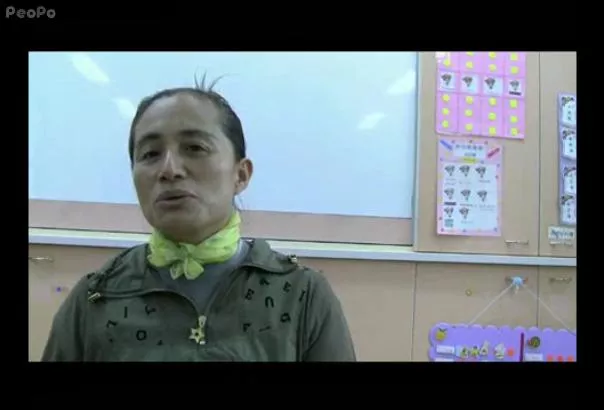Digging deep to preserve the Tsou language
Tsou (鄒) tribal elders are deeply worried that their language will be lost to the next generation. Although school curriculums include courses in native languages on the syllabus, qualified teachers are few and far between. Alishan Elementary and Junior High native-language teacher Yamuyi (亞慕伊) believes that the main barriers for native-language learning are the extremely poor native language ability of young parents, in addition to the erratic quality of native language teachers for the younger generation – many of whom often exhibit fundamental pronunciation errors. Although Yamuyi and a group of tribal elders have long been promoting the preservation of the tribal language, their power is limited, and so they have turned to the Council of Labor Affairs (公部門) in the hope it can increase the funding provision for native languages and demand that native-language teachers take periodical refresher courses. Yamuyi pointed out that the best way to ensure the authenticity of the Tsou peoples’ mother tongue is its common and habitual usage, and that the best domain for that to occur is within the family home.
Yamuyi, currently the certified native-language teacher for Alishan Elementary and Junior High, has a curriculum stretching all the way from kindergarten, where students understand their Tsou name. “The earlier the children come into contact with their mother tongue, the more accurate and deeper they absorb it. However, under heavy pressure from the exam system, many parents send their young children to the cities for study, closing an important window of opportunity in learning their native tongue. Once in the city, these children begin learning alongside Han Chinese children in a typical Chinese learning environment and gradually loose touch with their indigenous peers and culture. At this point, coming into contact with their mother tongue becomes more and more difficult; these subjective and objective factors, directly or indirectly, severely hinder the ability of indigenous children to learn their mother tongue,” said Yamuyi. In addition to serving as a certified native-language teacher, Yamuyi is also on the Tsou dictionary editorial board where she has made a long-term investment in the traditional culture of the Tsou people. With her high proficiency in the Tsou language, she is one of a remaining small pocket of Tsou people who keep the fire of hope alive for the preservation of the Tsou people’s native language.
Digging deep to preserve the Tsou language ( by CJ cu8060)
URL:http://www.peopo.org/news/103876
(以下是中文對照)

推動鄒語保存 亞慕伊不遺餘力 影音 ( 公義使者 )
鄒語保存遭遇瓶頸,部落耆老擔憂語言失傳,縱然學校也編排母語課程,但師資來源卻青黃不接,阿里山國中小母語老師亞慕伊坦言:現在年輕父母,本身傳承下來的母語能量已經不高,再加上年輕一輩的母語老師良莠不齊,甚至基本的發音都錯誤,這才是母語保存的障礙,亞慕伊雖然在部落與一些長輩長期推動鄒語保存,但個人力量畢竟有限,她希望公部門能增加編列母語保存預算,並長期要求母語老師進修,亞慕伊也指出,要原汁原味保存鄒語的完整性,最直接的方式就是「常用、慣用」,而「常用、慣用」最佳的範圍與場域就是家庭。
亞慕伊目前是阿里山國中小的認證母語老師,她的課程從幼兒班的認識自己鄒的名字開始,亞慕伊說:孩童越小接觸母語,其吸收度越準確,但在升學主義的壓力下,很多家長早早就把孩子往城裡送,倒致黃金學習期出現空窗,孩子到了城市之後,漸漸與部落脫節,在與漢人合班(合校)的學習環境,要接觸母語就越困難,這些主客觀因素便直接或間接遏阻了部落孩子學習母語的動能。亞慕伊同時也是鄒語字典的編輯委員,她長期投入鄒族傳統文化與鄒語的保存工作,是族人少數母語能量具足的長輩。
為擴大服務範圍,PeoPo每周精選三則公民報導及相關活動與發展,翻譯成英文摘要,讓更多關心台灣公民新聞的朋友,瞭解台灣在地大小事。

回應文章建議規則: